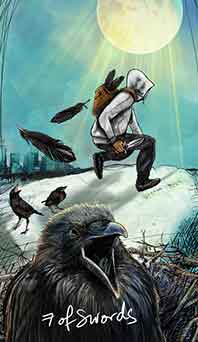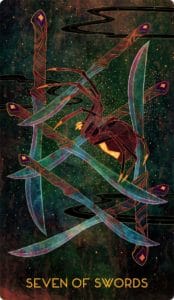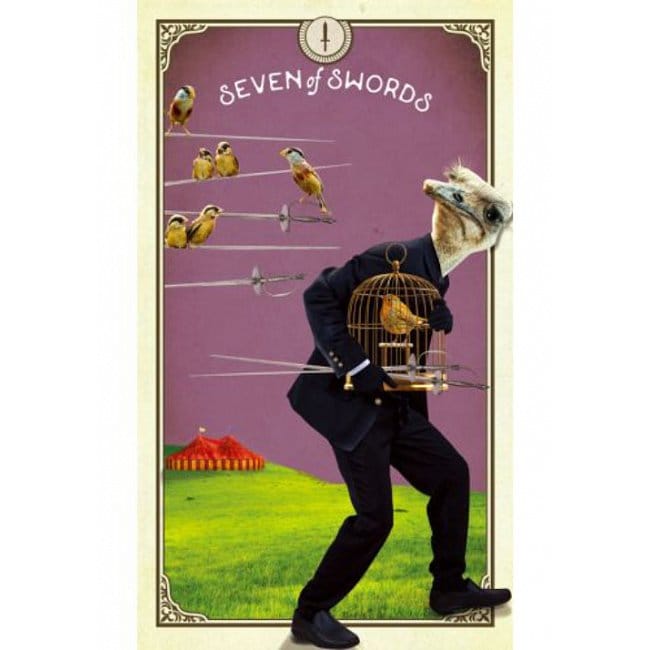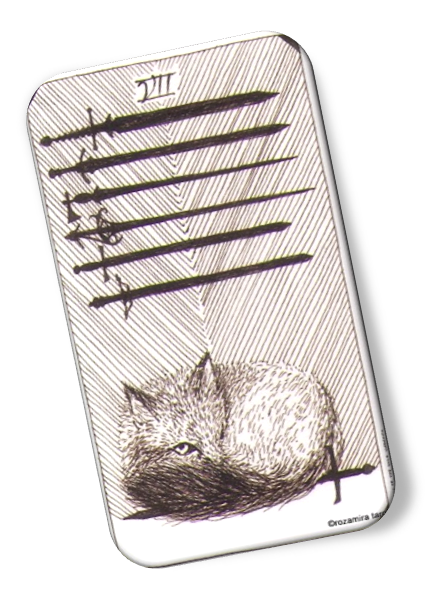Seven of Swords
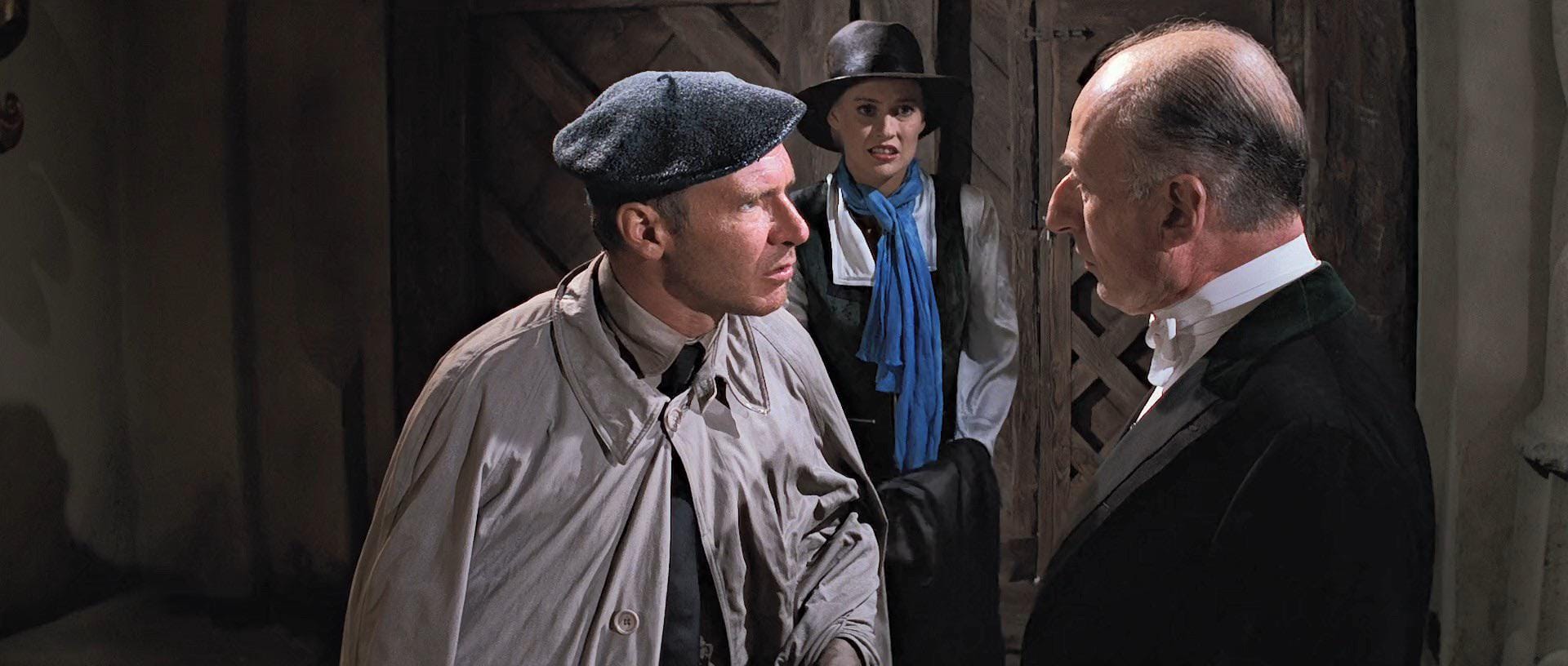
A figure in a red hat, tiptoes out of an enemy's camp with a handful of swords. He's stealing weapons from his enemies by engaging in subterfuge, trickery, and deception, which is what this card is all about. When I draw the seven of swords I begin by asking myself – what am I lying to myself about in this moment? What do I feel like I'm getting away with? In what ways am I taking shortcuts or not being honest with myself or others? What are my true intentions?
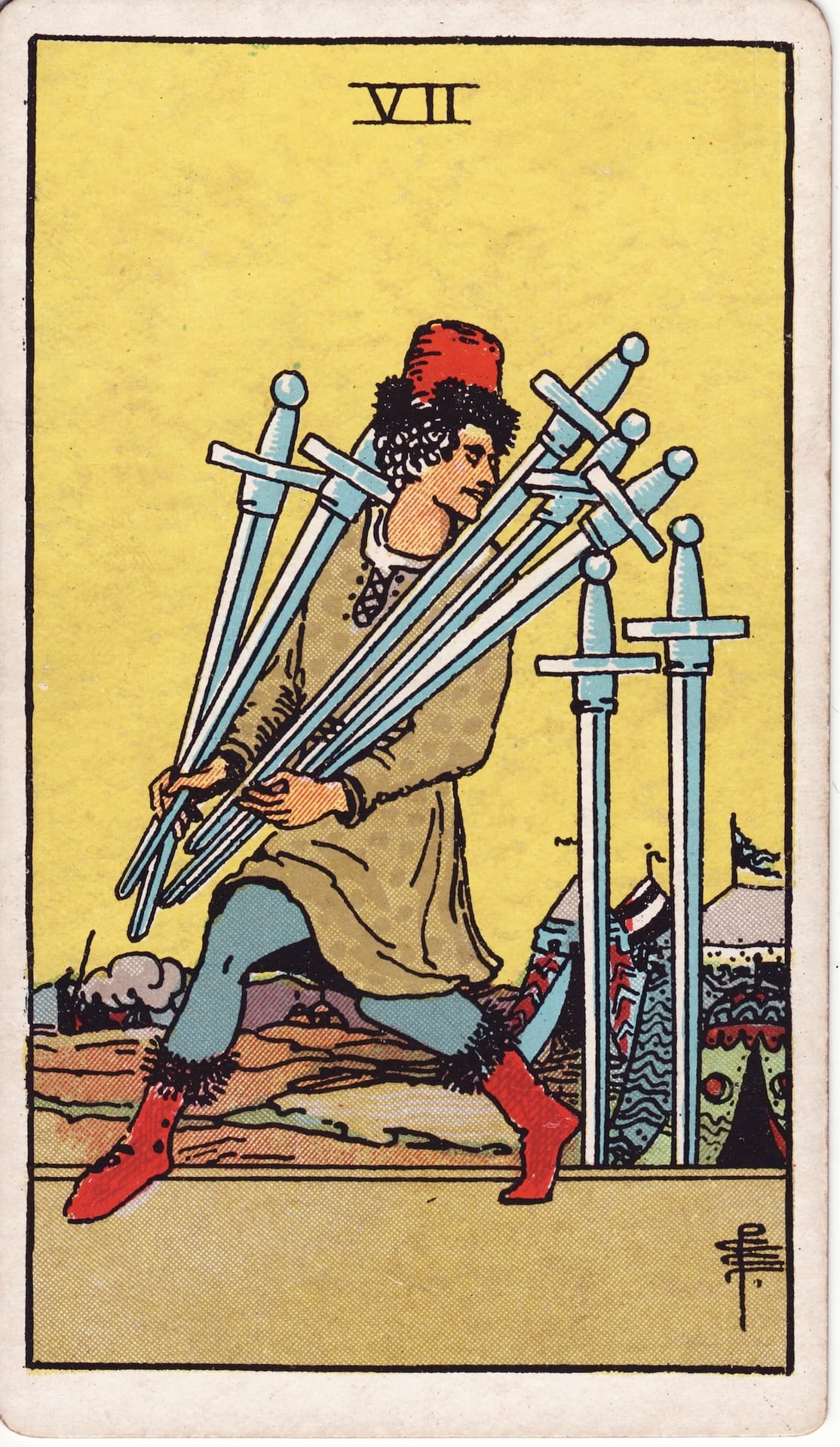
Like most cards, there are positive and negative aspects to the card depending on the question and the querent. Sometimes subtle manipulation is necessary (any working woman alive today has used the age-old manipulation tactic of making powerful men feel like your idea was their idea). Sometimes the only way those with less status and power can turn the tides on those who seek to oppress them is through trickery and deception.
Take, for example, Indiana Jones, a character I've cited so often in this newsletter that I ought to make an entire Indiana Jones tarot deck. There's the brilliant scene where Indy, dressed in a beret and speaking with a Scottish accent, cons his way into a Nazi stronghold. Or, the scene in Raiders of the Lost Ark, where Indiana, disguised as one of the other (Nazi) archeologists searching for the ark, is able to blend in and move freely about the Nazi camp, searching through desert tents for the captured Marianne and clues to the Ark's whereabouts – extremely Seven of Swords coded production design. Or, in Last Crusade, when Indy knocks out a Nazi and puts on his uniform to save his father's grail diary from a book burning, only to find himself face to face with Hitler himself (his deception is good enough that Hitler merely signs his noxious autograph in the grail diary and hands it back to him). When Indy is faced with an expert swordsman threatening to filet him, Indy takes the easy way out and shoots the guy (note: this moment and many others are also dripping with racism and stereotype, the movie is forty years old).
Indiana Jones is a trickster, and he embodies the positive aspects of the Seven of Swords. He's inventive, quick on his feet, impulsive, courageous, and he gets himself into all kinds of pickles and still manages to squirm his way out. He's got no qualms with the simplest solution being the best one, and he (for the most part) doesn't let his ego get in the way – if there's a shortcut, he's probably gonna take it.

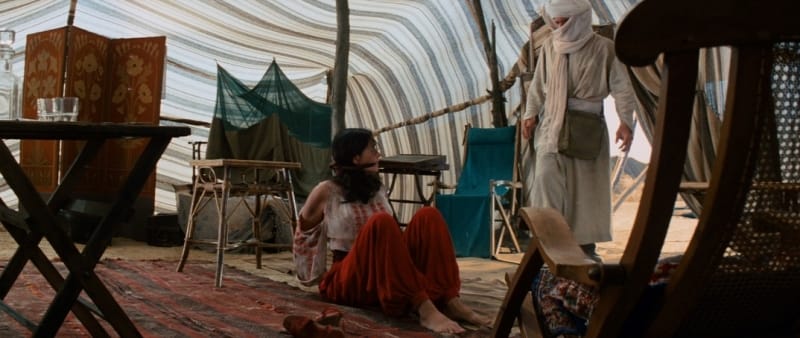
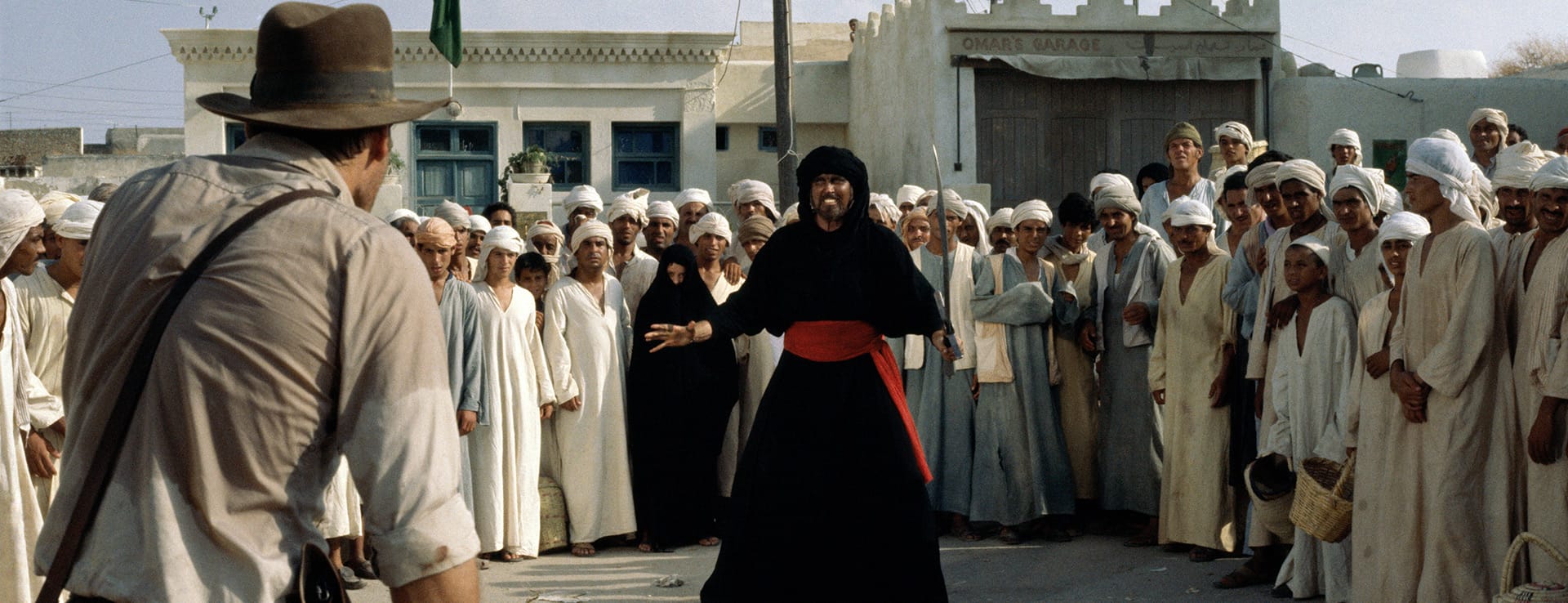
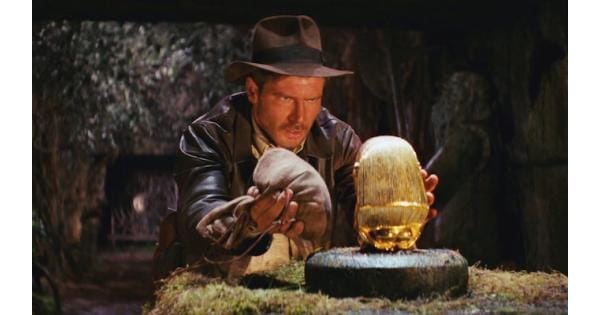
Sometimes we have to lie to ourselves. There is plenty of self-delusion in the optimism I am trying my best to maintain during the darkest political period of my lifetime, for example. I am in search of silver linings – more than once in the last week I've suggested to people that Trump crashing the global economy could be seen as a positive thing, if only because it will hasten the inevitable collapse of civilization (and god willing, Trump's popularity), and make way for a totally new system (fingers crossed for a better one). My delusion and desire for optimism, in other words, has apparently turned me into some kind of accelerationist. I'd like to note that I never asked for or voted for any of this, and my preference would have been Kamala Harris for president (with public pressure on her to be more progressive), so this anarchy stance is merely a function of my desire not to lose all hope and fall into a pit of despair.
This is benevolent deception, I believe. I am not turning away from reality, or disengaging entirely. I'm just trying to find hope where I can. Optimism in this moment is a radical act, and it's the only way that I can keep getting up in the morning to fight another day. Despair and despondency are things my body and spirit are intimately acquainted with – they exist in my muscle memory, and if I give in to them, they'll take over and quick. Depression! It's just like riding a bike!
But when the Seven of Swords leads you to disassociate or lie to yourself or others, that's when the more negative aspects of this card come into play. I think of my own years of drinking, when I would delude myself into believing that it wasn't a problem because I wasn't driving drunk and I hadn't ever been arrested. If you never drink in the morning, you're not an alcoholic, the seven of swords would whisper in my head. If you don't get mean when you drink, you're not an alcoholic. Sure you can't stop at one or two drinks, but you don't drink ten! There were so many rules I made up to determine whether my drinking was a problem, but a good rule of thumb is this: if you are worried that your drinking is a problem, it probably is.
In my drinking life, self deception was an important practice. Drinking helped me turn my brain off at the end of a long day, it numbed my anxiety (temporarily of course, because there's no more anxious time than the hungover morning after drinking) for long enough that my body could achieve a kind of relaxation, if you define relaxation as sitting still. Drinking helped me temporarily forget about all kinds of stressful things that I needed to do – paying bills, making doctors appointments, filing paperwork.
The problem with self deception is that those problems don't go away. They linger somewhere in the background, and the more you push them off, the bigger and scarier they become. By the time you quit drinking and realize you haven't been to a dentist in a couple of years, the reintroduction to life's responsibilities feels like taking a bucket of ice to the face. It's still worth it. I'd take clear-eyed facing of life's responsibilities over putting my head in the sand any day.
If you draw the Seven of Swords, you should ask yourself the following questions:
- In what ways are you deceiving yourself or others?
- Are there people in your life who are deceiving or betraying you? Is there someone close to you who you should not be trusting?
- In what ways are you betraying yourself or your beliefs?
- What do you feel like you are getting away with? (This can be positive or negative! If you're not hurting anyone, sometimes things are allowed to be easy!)
- What are the motivations behind your actions? Is your motivation in alignment with your morality?
And once you've asked yourself those questions, ask yourself a few more:
- How can you be strategic in this moment?
- In what ways can you adapt and think quickly when a problem presents itself?
- What is the easiest solution to your problem? Does it require selective deception? Can you manipulate the situation without betraying your morality?
The Seven of Swords can be both positive and negative. It's a card that urges strategy and reminds you to be honest with yourself above all us.
